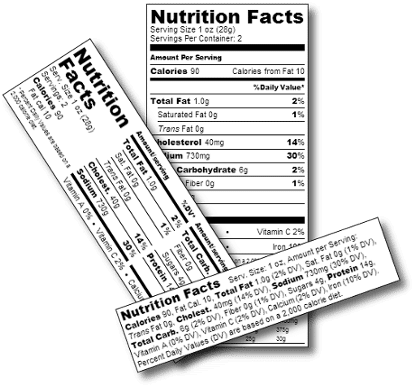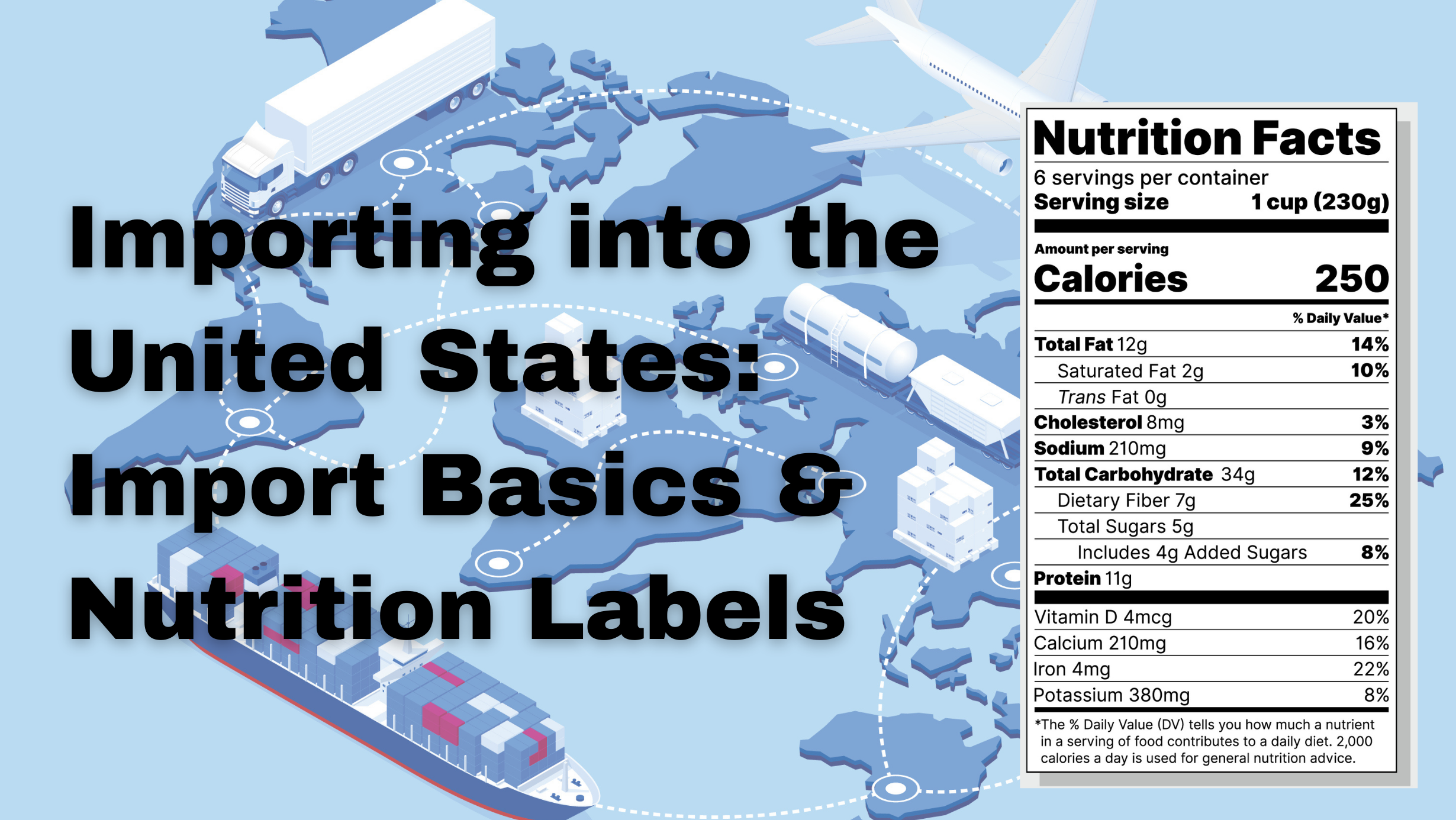
Importing food into the United States can be a sticky process if you aren’t up to date on government requirements. Here are the 5 major points you need to know to begin importing your food products into the United States to meet all major FDA guidelines.
1. Register Your Facility with the U.S. Food and Drug Administration
According to the FDA website any importer can import their food products into the United States without prior sanction of the FDA if the facility as long as the facility is registered with the FDA and they give prior notice to the FDA of food shipments.
You can register your facility on the FDA website by visiting their website and filling out all required fields. Click here to register.
2. Designate a U.S. Food Agent to handle your U.S. Communications
All importers of food under U.S. requirements must have a U.S. food agent to act as a liaison for FDA communications regarding incoming food shipments. The FDA will communicate with your agent to schedule inspections and to verify that all food safety requirements are being upheld.
This particular step is of the utmost importance. While it may seem simple to designate your importer or even your customs broker as your agent, the FDA recommends using a stateside agent and even offers a company directly through the FDA website, called Registrar Corp, which can act as your agent. Below you can see a list of services pulled directly through the Registrar website that are provided through your agent that perhaps your importer may not be able to provide:
Registrar Corp’s U.S. Agent service includes:
- Registration Renewal: Mandatory Biennial FDA Food Facility Registration Renewal
- Certificate of Registration: Certificates issued by Registrar Corp provide confirmation of your facility’s registration to industry
- Registration Updates: Registrations must be updated within 60 days of a change in required information
- Prior Notice: Three free Prior Notice filings each year for your exports to the USA
- Detention Assistance: Communication with FDA on your behalf to seek the release of a detained shipment
- Mock FDA Inspection: Onsite expert assistance at a discounted rate
- DUNS Assistance: Obtain a DUNS number or update an existing DUNS record
- FDA Compliance Monitoring: A unique system that continuously monitors your company’s FDA compliance status
You can see this list and more on the Registrar Corp Website.
3. Obtain all Required Permits
According to the U.S. Customs and Border Protection, food products that are imported into the United States may require additional permits, health certificates and/or other specialized certifications. These foods include but are not limited to: meat, milk, poultry, eggs, and other products that are from animal origin.
The U.S. Customs and Border Protection assigns an Import Specialist at each port of entry that you may consult with regarding the requirements for your particular food product. They also highly recommend hiring a customs broker that can assist with your CBP entry.
Food products must have a PN (Prior Notice) filed with the FDA to alert them of the shipment of your product for receipt at the port of entry. Once your food shipment(s) is received, it will be subjected to a thorough inspection to pass all food safety requirements. These inspections can be detailed to you by the Import Specialist so that you can ensure your imported food products will be readily received and will not be detained for not passing inspection.
4. Understand the FDA Requirements for Your Food Product
Each food shipment being imported into the United States, from fresh fruit to livestock, has particular requirements that must be met to pass inspection and be permitted to pass through the port of entry.
For further questions regarding the FDA regulations regarding your food product here is a list of helpful links and numbers that can direct you to the department that handles your particular item:
Plant and Animal Items
U.S. Department of Agriculture: www.usda.gov
Food Safety and Inspection Service, Import Division, at (202) 720-9904 (This number is helpful to inquire as to the admissibility of your product into the United States. Particularly in regards to livestock, poultry and the products derived from these sources.)
Fruits and Vegetables
Animal and Plant Health Inspection Service :https://www.aphis.usda.gov/aphis/ourfocus/planthealth/import-information
You may also call the APHIS Plant Division at (301) 734-8295
5. Make Sure Your Product is Labeled Appropriately
According to the FDA, food items that are canned, packaged, baked goods or seafood must be labeled with the appropriate information. This information includes but is not limited to: country of origin, nutrition information and ingredient information.
Depending on the size of your product and product packaging, the FDA has issued multiple formats that are permissible for use for labeling.

Various formats can be used to label your product when importing food into the United States.
For more information on FDA approved labeling, click here for required criteria.
You can also call the Office for Food Labeling for specific questions on labeling your product at : (202) 205-4606.
If your food item falls into the category of products that require labeling, LabelCalc is an intelligent cloud-based software that provides FDA approved labels for your food products. Please contact us for all of your labeling needs to assure you are ready to import your product into the United States.

